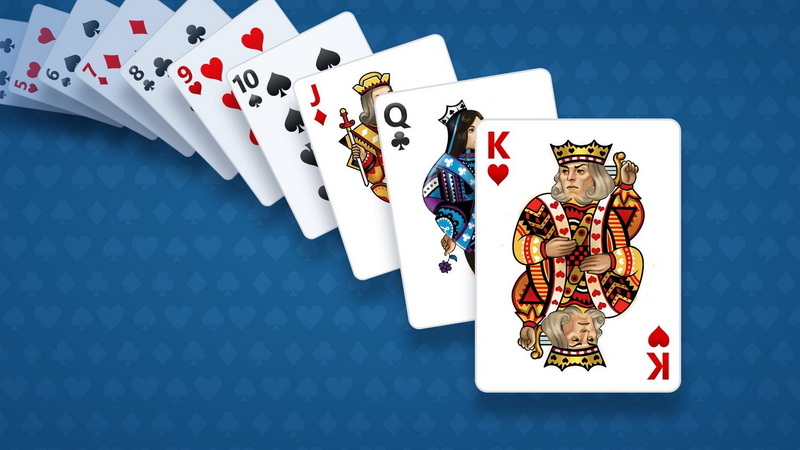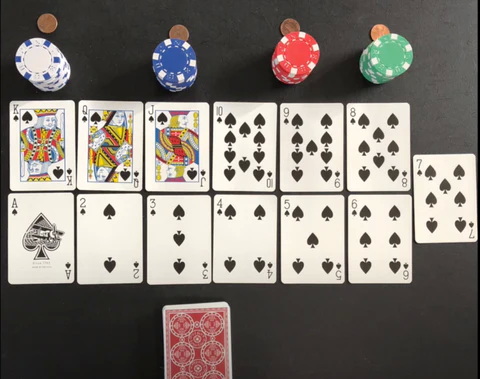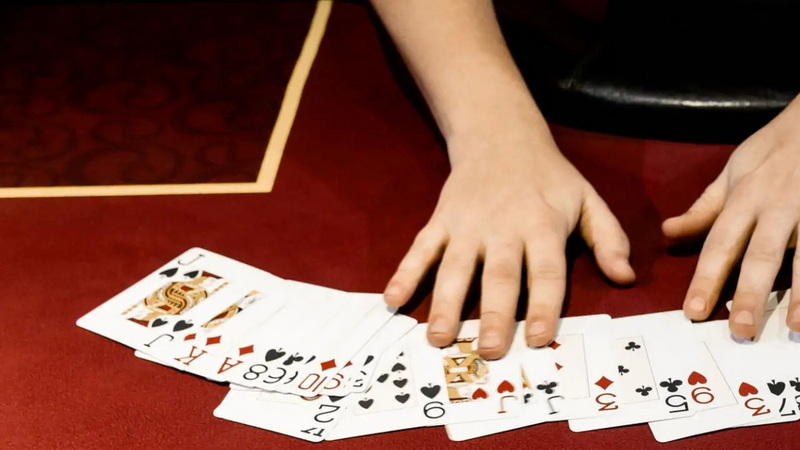Content Menu
● Overview of Pharaoh
● Game Components
● Setting Up the Game
● Basic Rules of Pharaoh
>> Betting Phase:
>> Dealing Cards:
>> Continuing Play:
>> Dead Bets:
>> Final Round:
● Types of Bets
● Strategies for Winning at Pharaoh
● Historical Context of Pharaoh
● Gameplay Dynamics
● Conclusion
● Frequently Asked Questions
>> 1. What is Pharaoh?
>> 2. How many players can participate in Pharaoh?
>> 3. What do I need to play Pharaoh?
>> 4. How do payouts work in Pharaoh?
>> 5. What happens if I place a dead bet?
● Citations:
Pharaoh, also known as Faro, is a classic gambling card game that has entertained players for centuries. Its origins can be traced back to 18th century France, where it was named after the image of a pharaoh depicted on certain playing cards. The game gained immense popularity in the American West during the 19th century, becoming a staple in saloons and gambling houses. This article will provide a comprehensive guide on how to play Pharaoh, including its rules, strategies, and gameplay mechanics.

Overview of Pharaoh
Pharaoh is primarily a betting game that requires a standard 52-card deck and additional cards to create a betting tableau. The objective of the game is simple: players place bets on which card they believe will be drawn next from the deck. The game can accommodate two or more players, making it a social and engaging experience.
Game Components
To set up a game of Pharaoh, you will need:
- A standard 52-card deck
- An additional set of 13 cards (Ace through King) from one suit, usually spades
- Betting chips for each player
- A penny for each player to place specific types of bets
Setting Up the Game
1. Create the Tableau: Arrange the additional spade cards face up on the table in numerical order from King down to Ace. This layout serves as the betting board where players will place their bets.
2. Distribute Chips: Each player receives a set number of betting chips and a penny.
3. Choose a Banker: One player is designated as the banker who will manage the deck and handle payouts.
Basic Rules of Pharaoh
Understanding the basic rules is crucial for enjoying Pharaoh:
Betting Phase:
- The banker reveals the top card of the shuffled deck, known as the "soda," and places it face up.
- Players then place their bets on one or more cards on the tableau, indicating which card they think will be drawn next.
Dealing Cards:
- The banker draws two cards from the deck:
- The first card drawn is called the "losing card," and any bets placed on this rank are lost.
- The second card is called the "winning card," and all bets placed on this rank win at even money (1:1 payout).
Continuing Play:
- The banker places both drawn cards aside and allows players to adjust their bets before drawing two new cards.
- Players can keep their current bets, move them around, or place new bets.
Dead Bets:
- If a player places a bet on a card that has already been drawn four times, it is considered a "dead bet." Any player can call out "dead bet" to collect those chips.
Final Round:
- When only three cards remain in the deck, players can place bets predicting the order in which these three cards will be drawn.
- Correctly guessing this order pays out four times the bet amount.
Types of Bets
Pharaoh offers various betting options that add excitement to gameplay:
- Flat Bets: Players bet on any one of the 13 ranks.
- Split Bets: Players can place bets covering two ranks simultaneously.
- High Card Bets: Players can wager whether the winning card will be higher than the losing card.
- Odd/Even Bets: Players can bet whether the winning card will be odd or even.
- Turn Bets: Betting on the order of the last three cards in the deck.

Strategies for Winning at Pharaoh
While Pharaoh is largely based on chance, employing some strategies can enhance your chances of winning:
1. Flat Betting: Focus on flat bets when there are many cards left in play. This reduces your risk of losing half your bet due to ties.
2. Observe Patterns: Keep track of previously drawn cards to inform your betting decisions.
3. Avoid Dead Bets: Always be aware of how many times a card has been drawn to avoid placing dead bets.
4. Manage Your Bankroll: Set limits for your betting amounts to ensure you don't overspend during gameplay.
5. Bet Wisely in Final Rounds: When only three cards remain, carefully consider your options for predicting their order based on previous outcomes.
Historical Context of Pharaoh
Pharaoh's history is as rich as its gameplay. The game was first played in 18th century France and was initially known as "Pharaon." It became popular among both aristocrats and commoners due to its straightforward rules and fast-paced nature. By the early 19th century, Pharaoh had made its way across Europe and into America, particularly during the Gold Rush era when gambling flourished in mining towns.
In these settings, notable figures like Doc Holliday and Wyatt Earp often acted as bankers or dealers in Faro games. The game's popularity surged due to its accessibility and better odds compared to other gambling games like poker or blackjack at that time. However, by mid-20th century, Faro began to decline as other casino games gained traction, leading to its eventual disappearance from most gambling establishments by 1975.
Gameplay Dynamics
The dynamics of gameplay in Pharaoh are crucial for understanding how to engage effectively:
- Player Interaction: Unlike many solitary card games, Pharaoh thrives on social interaction. Players often discuss strategies or share insights about potential outcomes based on previous rounds.
- Pacing: The pace of play in Pharaoh is rapid; rounds can progress quickly as players make decisions about where to place their bets after each draw.
- Psychological Aspects: Players must also consider psychological elements such as bluffing or reading opponents' behaviors when making bets—though less pronounced than in poker, these elements still play a role in decision-making.
Conclusion
Pharaoh is an engaging gambling game that combines luck with strategic betting choices. Its historical significance and simple mechanics make it appealing to both new and experienced players alike. By understanding the rules and employing effective strategies, you can enhance your enjoyment and potentially increase your winnings while playing Pharaoh.

Frequently Asked Questions
1. What is Pharaoh?
Pharaoh (Faro) is a gambling card game where players bet on which card will be drawn next from a deck.
2. How many players can participate in Pharaoh?
Pharaoh can be played with two or more players.
3. What do I need to play Pharaoh?
You need a standard 52-card deck, an additional set of 13 spade cards (Ace through King), betting chips, and a penny for each player.
4. How do payouts work in Pharaoh?
Players receive even money (1:1) for winning bets based on their wagers placed on winning cards; losing bets are collected by the banker.
5. What happens if I place a dead bet?
If you place a dead bet (on a card drawn four times), any player can call out "dead bet" to collect those chips.
Citations:
[1] https://www.wikihow.com/Play-Faro
[2] https://wizardofodds.com/games/faro/
[3] https://playingcarddecks.com/blogs/how-to-play/faro-games-rules
[4] https://en.wikipedia.org/wiki/Faro_(banking_game)
[5] https://www.youtube.com/watch?v=cwxzhkn1d40
[6] https://www.pagat.com/banking/faro.html
[7] https://www.youtube.com/watch?v=CUARRsVdARs
[8] https://www.legendsofamerica.com/we-faro/
[9] https://www.youtube.com/watch?v=39CsBHs60qU
[10] https://www.britannica.com/topic/faro-card-game
































